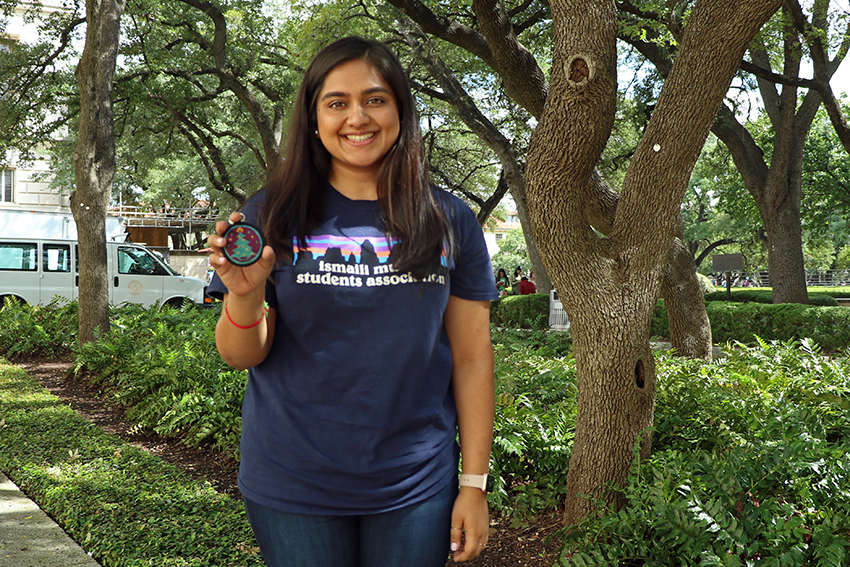Intricately woven designs of gold, red, green and blue caught the eyes of many students on Monday as they passed the booth filled with handmade bags, pencil holders and key chains sewn by women from Hunza Valley, Pakistan.
The colorful products serve as a monthly fundraiser for the Ismaili Muslim Students Association, a faith-based but all-inclusive organization that promotes community service, health and fitness and connections with other organizations.
Shama Tajani, vice president of external affairs of IMSA, said the family of a current IMSA member purchased the merchandise 20 years ago directly from the artists in Pakistan while working with the initiative, Thread Net Hunza. The family then donated it to IMSA three years ago. The women in Hunza Valley often do not have disposable income and live in a rural area without many resources.
“(Thread Net Hunza works) to provide awareness of the craft and to show people this gem that the world was not aware of,” said Tajani, a health and society and pre-med senior.
Thread Net Hunza is a collaborative project created by the women and other disadvantaged residents of Hunza Valley to provide steady revenue and create a sustainable lifestyle to those people of this area through grants funded by the Aga Khan Foundation, the Swiss Agency for Development and Cooperation and the Karakoram Area Development Organization.
“Not only are they making their own source of income, but they’re getting to do what they love, and it can continue for generations — it’s not a quick fix,” former IMSA president Nausheen Lelani said. “These women can spend their time and really grow the community as well.”
IMSA finance chair Sameer Ajani purchased a crossbody bag last year as a gift for his mom, who is from Pakistan.
“She really liked it because, in our culture, bags are used a lot, so she loved the design and that it was handmade and unique,” Ajani said.
Prices range from five to eight dollars for the merchandise, and Ajani estimated it has raised $85 for IMSA this semester alone.
Tajani said IMSA wants to promote awareness of people’s struggles around the world.
“These women don’t have electricity, like it’s not from a sewing machine that these products are made,” Tajani said. “It’s to show … you use the resources you have available, and you become self-sustainable, so you can have a better quality of life, and also so you can become a contributing member of society.”





















